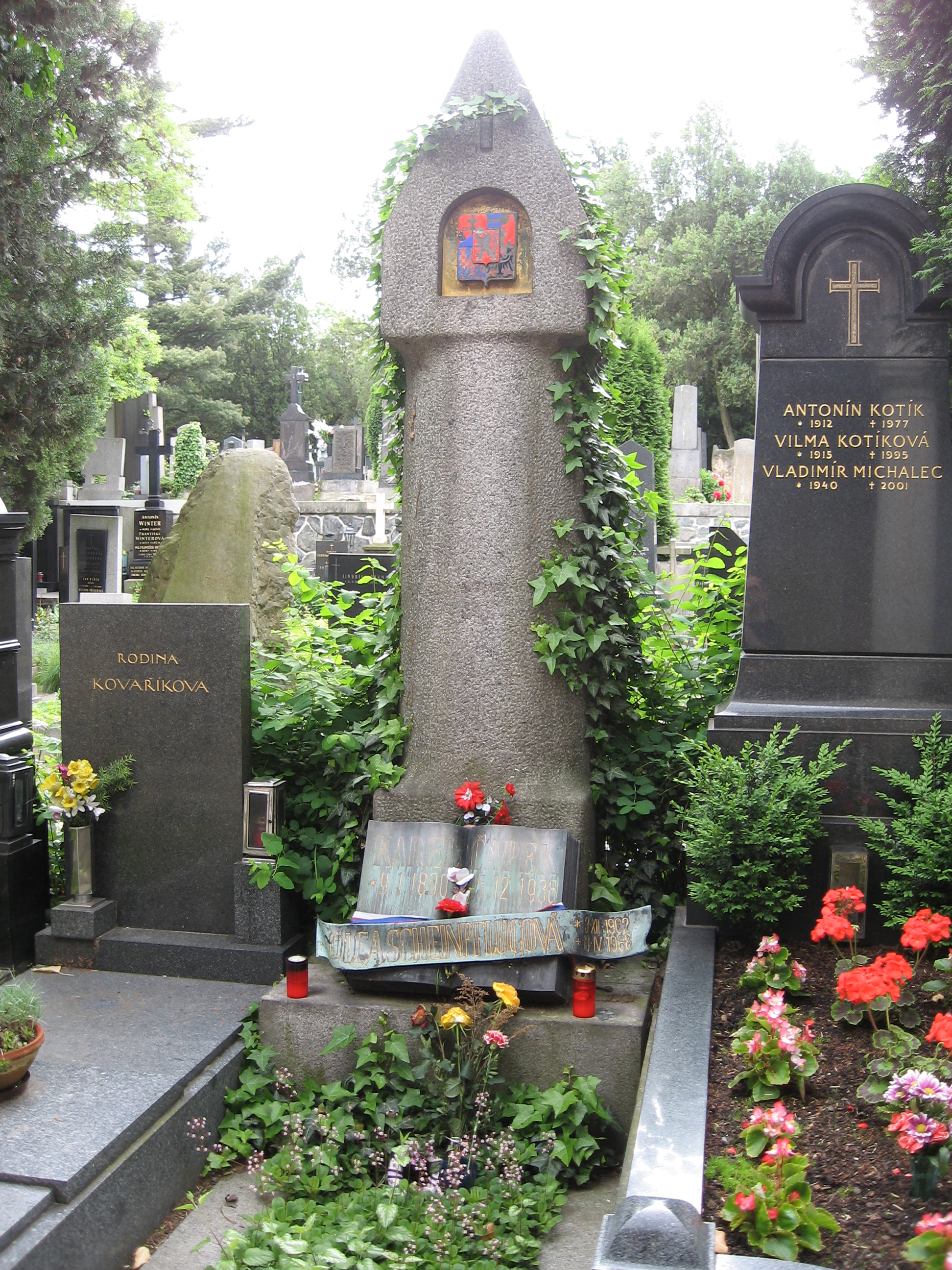Čapek, Karel, 1890-1938
Enlarge text Shrink text- The Author's רומן צ'כי, תשס"ד 2004.
- LCN data
- LCN: Capek, Karel, 1890-1938.
- Record enhanced with data from Bibliography of the Hebrew Book database
Karel Čapek (Czech: [ˈkarɛl ˈtʃapɛk] ; 9 January 1890 – 25 December 1938) was a Czech writer, playwright, critic and journalist. He has become best known for his science fiction, including his novel War with the Newts (1936) and play R.U.R. (Rossum's Universal Robots, 1920), which introduced the word robot. He also wrote many politically charged works dealing with the social turmoil of his time. Influenced by American pragmatic liberalism, he campaigned in favor of free expression and strongly opposed the rise of both fascism and communism in Europe. Though nominated for the Nobel Prize in Literature seven times, Čapek never received it. However, several awards commemorate his name, such as the Karel Čapek Prize, awarded every other year by the Czech PEN Club for literary work that contributes to reinforcing or maintaining democratic and humanist values in society. He also played a key role in establishing the Czechoslovak PEN Club as a part of International PEN. Čapek died on the brink of World War II as the result of a lifelong medical condition. His legacy as a literary figure became well established after the war.
Read more on Wikipedia >
 Personality
Personality







